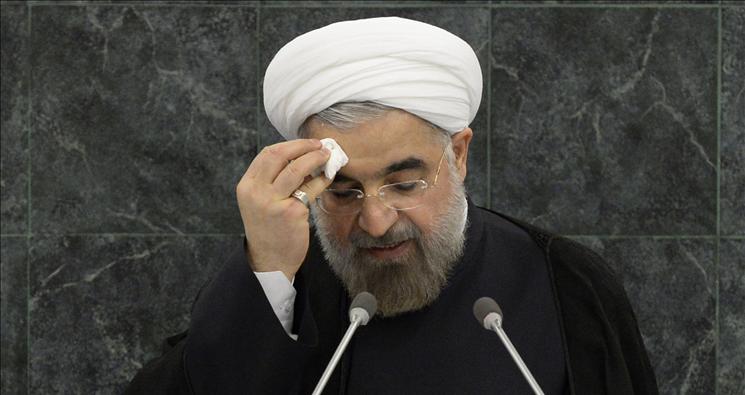BREAKING: CNN’s Amanpour Asks Iranian President Rouhani about Pastor Saeed
CNN’s Christiane Amanpour interviewed Iranian president Hassan Rouhani, specifically asking him about American pastor Saeed Abedini.
While President Rouhani did not specifically address Pastor Saeed’s case, he did admit that “we should assist those people who have American citizenships that are incarcerated in Iran.”
It is critical that we continue to pressure Iran to release Pastor Saeed. Over 104,000 people have already written letters to President Rouhani through BeHeardProject.com.
We would like to thank Christiane Amanpour for taking this opportunity to ask this critically important question of President Rouhani and all those who took to Facebook this week urging her to do just that.
Putting Pastor Saeed’s case front and center before Iran’s new president is a critical step in continuing to pressure Iran for his release.
The full exchange is below.
AMANPOUR: Secretary of State John Kerry has made a specific appeal to you and to the Iranian government, asking you to help three - free three Americans who have been detained for many, many years. And their families are desperate for news of them. They've given us interviews. They've spoken to us. They really are desperate for news of these people - Bob Levinson, who's been disappeared since March of 2007; Amir Hekmati, who's a 30-year-old jailed since 2011 and says on - on a coerced false confession; and Saeed Abedini, who's 33 years old and was jailed a year ago on religion-related charges.
What can you say to, uh, the secretary of State, or to the American people and the families of these people?
Will you do something to finally unlock these cases?
ROUHANI: You see, there are two issues.
First, you mentioned a person that I've never heard of. Mr. Levinson, we don't know where he is, who he is. Sometimes you are speaking of people who come before a court of trial and other times, there are people who disappear. It's not a clear question to put these two categories side by side.
He is an American who has disappeared. We have no news of him. We do not know where he is. We are willing to help and all the intelligence services in the region can come together to gather information about him to find his whereabouts. And we're willing to cooperate on that.
But if somebody has been arrested, the second category, you know that there's a trial system. There is the judiciary that has to handle the case. Our constitution accepts the separation of our three powers, one being the judiciary, and it has to act independently.
So when someone is in prison and there is a case against him, he has the right to an attorney and representation. And we have numerous courts. We have different levels and this case can go through multiple levels.
But as to what governments can do, perhaps, on this issue, I think it's a very positive gesture for any government to do what it can to help. But I would like to say that we also have people who are in prison here in the United States. And we have all - this is a sort of a mutual request. Um, the U.S. government, who must assist those Iranians, those people who are of Iranian citizenship who are in prison here, as we should assist those people who have American citizenships that are incarcerated in Iran.
But having said that, our judiciary is independent and based on the constitution, the government has no right to interfere in the judicial process.
AMANPOUR: You don't think that it would be a gesture, as a new president who's talked quite warmly about trying to make better relations, that maybe Amir Hekmati, for instance, might get some attention?
ROUHANI: I've said governments should - if they decided to render any help, it is a very good thing to do. But at the same time, I'm trying to say that we cannot interfere in the judicial process. Not even the head of the judiciary can interfere in the decision of a court. And, um, there's a process, a due process that has to be completed.
But having said that, governments can assist. They can step in when it comes to the enforcement of laws and they can step in to facilitate the process. And I believe any government should do that. And if the U.S. government does that, the Iran - and if the Iranian government does that well, that would be a very good thing.
And, again, we have prisoners here in the United States. We have for a long time sought to see what help and assistance they can receive to be freed. And without speaking of their, you know, charges, whether they're real or not, I don't think this is the platform for it, I would conclude by saying that it's just good to help a human being.
I would be glad to help a human being. And American authorities, I hope, will also rejoice in assisting our - the Iranian citizens here in prison, as well.
